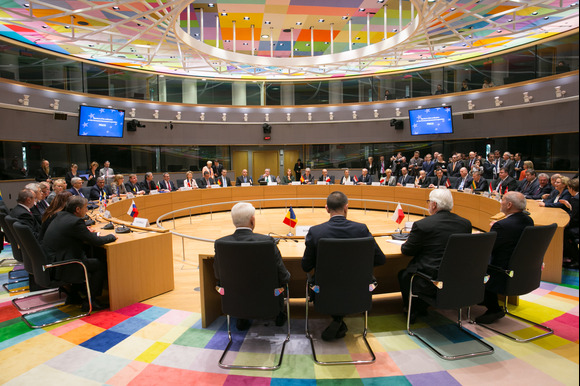The leaders of all 27 European Union member states are set to meet in Brussels on Thursday for a high-stakes summit that will address escalating geopolitical and economic tensions, including potential new sanctions on Russia, looming US tariffs, and how to shape a unified EU stance on the volatile situation in the Middle East.
The gathering follows closely on the heels of a short but intense NATO summit, where European leaders pledged major increases in defence spending and sought to ease recent tensions with US President Donald Trump. Ukrainian President Volodymyr Zelenskyy will participate in the EU summit via videoconference after meeting Trump on Wednesday.
Although Ukraine’s status within NATO has been recently downgraded—from a central focus to a secondary concern—Russia’s ongoing war in Ukraine remains a top priority for the European Union. Leaders will be debating a possible 18th round of sanctions against Moscow, as well as whether to maintain a price cap on Russian oil. However, the latter remains contentious among member states, with some arguing that it could lead to a spike in energy prices across the bloc.
At the same time, the threat of new US tariffs continues to cast a shadow over the EU, which negotiates all trade deals collectively for its 27 members. President Trump has renewed his criticism of European defence spending, singling out Spain for allegedly falling short and hinting at further trade penalties. French President Emmanuel Macron fired back, accusing Trump of jeopardising transatlantic ties by launching a trade war with long-time allies.
The summit will also tackle the EU’s positioning on conflicts in the Middle East, including the war in Gaza and Iran’s nuclear programme. The bloc is seeking to revive stalled diplomatic negotiations with Tehran while grappling with divisions over how to respond to Israel’s military campaign in Gaza.
Tensions are high among EU leaders over Israel policy. Spain’s Prime Minister Pedro Sanchez has become the most high-profile European leader to label the situation in Gaza as a “genocide.” He has called on the EU to immediately suspend its cooperation agreement with Israel, citing a recent EU diplomatic service report that found “indications” of Israeli human rights violations under the deal. The report raised concerns about Israel’s restrictions on humanitarian aid, a soaring civilian death toll, attacks on journalists, and widespread destruction and displacement in Gaza.
Meanwhile, divisions could deepen further over internal EU policies. Left-leaning political factions are criticising European Commission President Ursula von der Leyen for what they see as a shift away from climate leadership in favour of increased military investment.
Defence and security are expected to dominate discussions during the summit. The event will culminate in an official statement of conclusions, which will outline the EU’s policy direction for the coming four months and provide insight into the current political mood across Europe regarding major regional and global challenges.





